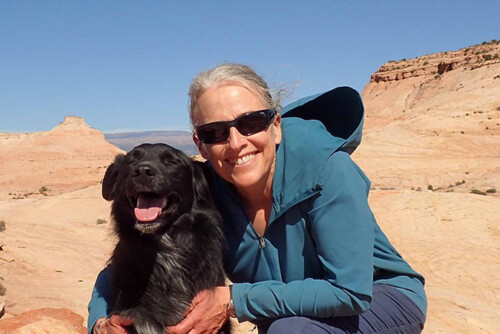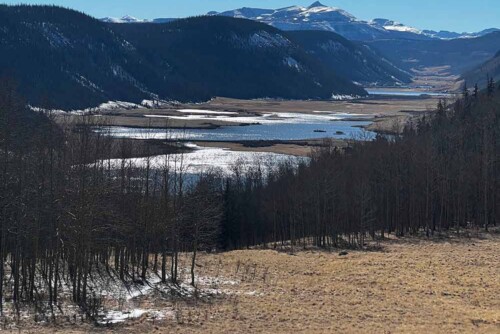In 2020, a Colorado agency quietly passed a decision to roll back water quality protections after a request from two industrial dischargers: Metro Wastewater and Molson Coors in Golden. And in in true stealth fashion, it did it without adequate public input and against recommendations from its own staff.
The Colorado Water Quality Control Commission (WQCC), the agency responsible for protecting the state’s streams, downgraded protections for three reaches of Clear Creek and the South Platte River. These two waterways run through several North Denver neighborhoods. Historically, both Clear Creek and the South Platte have been contaminated by industrial activity. Communities along the waterways have not had the full benefits of clean rivers and streams — such as safe recreational opportunities for tubing, boating, and angling.
The WQCC’s decision put the waterways in danger of further degradation, continuing a legacy of environmental injustice in North Denver and undercutting ongoing efforts to improve and safeguard water quality in urban streams. In response, WRA embarked on an ongoing effort, working side by side with metro-area communities and advocates, to protect these two important waterways in Denver.
“Once conservation advocates learned of this decision, we came together as a community and made engaging in the process a priority.”
In early 2021, in a bold attempt to retroactively justify its flawed decision making from 2020, the WQCC asked to expand the rollback of antidegradation protections for Clear Creek and the South Platte River beyond those two streams, to all rivers and streams across the state. The WQCC proposed a change to Colorado’s statewide water protection rules to allow increased levels of any pollutant in a waterway in which just one pollutant — out of the dozens the state monitors — exceeds a set limit. For example, if monitoring finds high levels of one harmful type of bacteria in a river, then discharges that raise levels of other, not currently elevated, pollutants would be allowed.
State and local environmental groups, including WRA, teamed up with advocacy organizations and local communities to safeguard urban waters and to ensure that they have the same protections as rural and mountain streams. Josh Kuhn, a water advocate with Conversation Colorado, one of the advocacy organizations, said that “once conservation advocates learned of this decision, we came together as a community and made engaging in the process a priority.”
When the WQCC held a hearing on the proposed statewide rule change, in May 2021, an unprecedented number of Coloradans provided public comment. Community members showed up in force and took the opportunity to testify to the importance of rivers to their neighborhoods in North Denver, shedding light on the failure of the 2020 decision to protect urban rivers and frontline communities. Mely Whiting, legal counsel for Trout Unlimited’s Colorado Water Program, said: “Watching the community come together to protect their home waters has been inspiring. Too often these commissions make decisions in a vacuum — hearing only from attorneys and consultants representing regulated entities and not from the communities affected by the pollution. I hope this is the beginning of a trend. And I hope the Colorado Water Quality Control Commission is listening.”
“Watching the community come together to protect their home waters has been inspiring. Too often these commissions make decisions in a vacuum — hearing only from attorneys and consultants representing regulated entities and not from the communities affected by the pollution. I hope this is the beginning of a trend. And I hope the Colorado Water Quality Control Commission is listening.”
The WQCC did hear the communities’ voices and rejected the statewide change. However, the story doesn’t end there. The WQCC did not revise its earlier decision to downgrade protections for the two urban streams in North Denver. In response, WRA filed a petition in November 2021 on behalf of a coalition of more than 12 environmental justice and local government organizations, asking the WQCC to reconsider its 2020 ruling. The petition requested that the commission recognize a legal error behind the original decision and restore protections for the three reaches of Clear Creek and the South Platte River.
As a result, in a December 2021 meeting, the WQCC granted WRA’s petition and agreed to undertake a rulemaking process in 2022 to reexamine antidegradation protections on Clear Creek and the South Platte River. That result speaks to the power of communities to make change. Kuhn spoke to this power, saying, “While more work is still to come to formally upgrade protections, we have shown that when decision makers’ decisions are unjust, we will hold them accountable.” WRA is committed to seeing the rulemaking process through and to help guarantee that all Coloradans, including North Denver residents, can access clean and healthy rivers.
The WQCC did hear the communities’ voices and rejected the statewide change. However, the story doesn’t end there. The WQCC did not revise its earlier decision to downgrade protections for the two urban streams in North Denver. In response, WRA filed a petition in November 2021 on behalf of a coalition of more than 12 environmental justice and local government organizations, asking the WQCC to reconsider its 2020 ruling. The petition requested that the commission recognize a legal error behind the original decision and restore protections for the three reaches of Clear Creek and the South Platte River.
As a result, in a December 2021 meeting, the WQCC granted WRA’s petition and agreed to undertake a rulemaking process in 2022 to reexamine antidegradation protections on Clear Creek and the South Platte River. That result speaks to the power of communities to make change. Kuhn spoke to this power, saying, “While more work is still to come to formally upgrade protections, we have shown that when decision makers’ decisions are unjust, we will hold them accountable.” WRA is committed to seeing the rulemaking process through and to help guarantee that all Coloradans, including North Denver residents, can access clean and healthy rivers.








